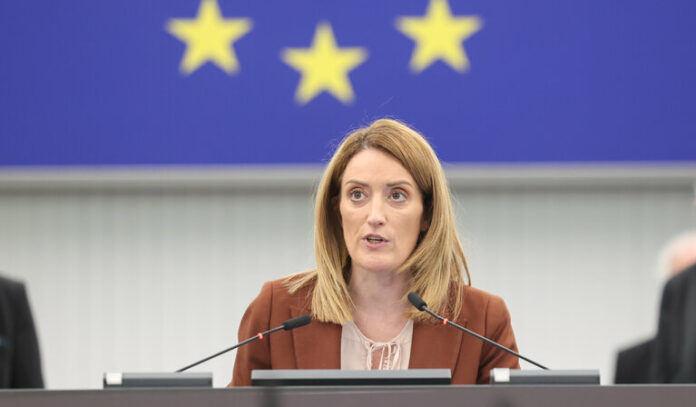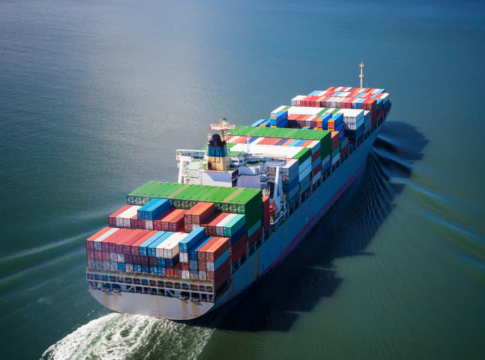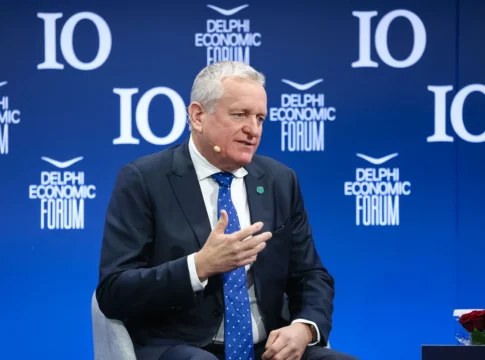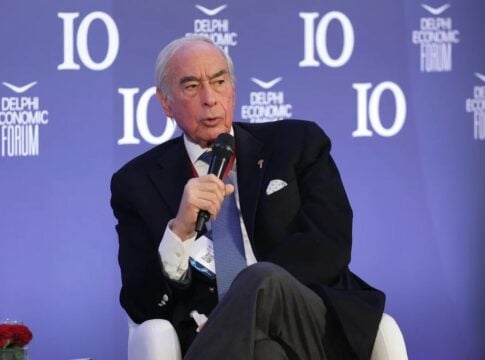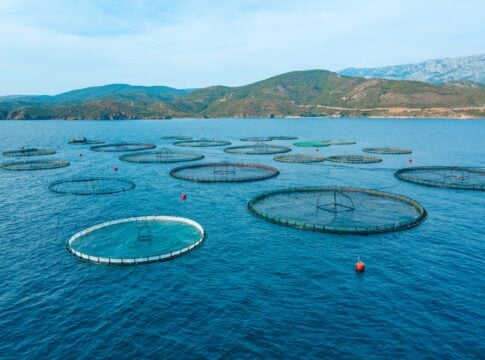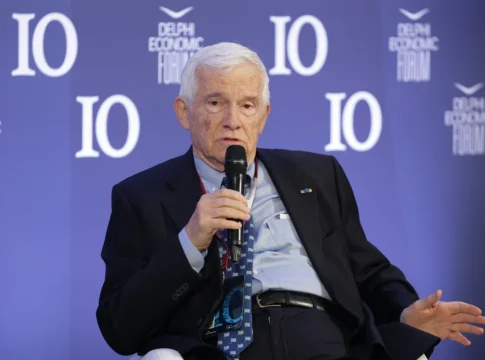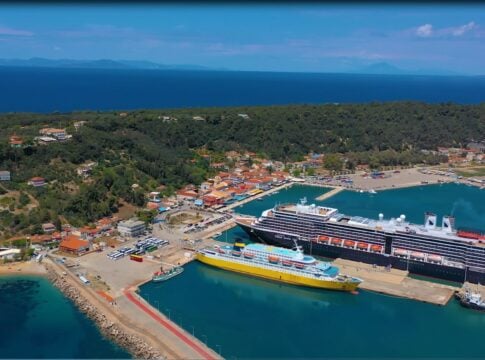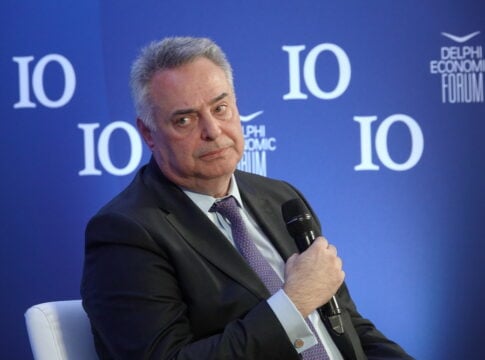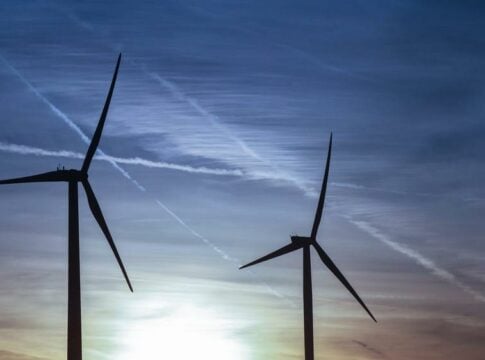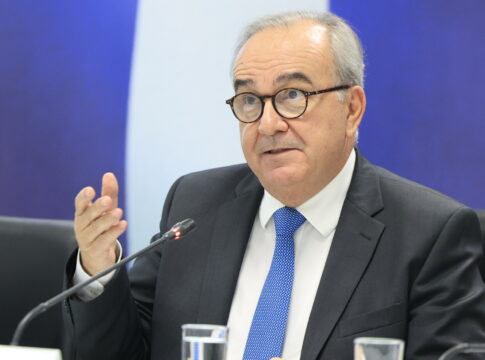The President of the European Parliament, Roberta Metsola, referred to the need for “strategic autonomy of the EU, complementary to NATO and not in competition with it”, in an interview with Naftemporiki.
Regarding the reactions caused by former US President Donald Trump’s statements about Vladimir Putin and the economic obligations of NATO member countries in view of the presidential elections in the USA in November, she emphasized that the “EU-USA cooperation must continue regardless of the outcome (of the election).”
Speaking to Naftemporiki ahead of her official visit to our country on Tuesday, February 20, she said that she wants to listen to the young people in the EU about their concerns and expectations, in the final stretch before the European elections.
Moreover, she estimated that the new Stability Pact ensures growth and does not lead to new austerity. Regarding the course of the Greek economy, she advocated the continuation of the reforms of the Mitsotakis’ government, because, as she said, “they bear fruit.”
The full interview with Eliza Karagiorgi follows:
Madam President, European Elections are 4 months away and according, at least, to the polls and surveys, the far right will gain more seats, and could end up being the winner in many countries (i.eg. France). Could this be prevented and if not, how could balance change inside the Parliament?
This is a very important issue. We cannot ignore people feeling distant, because failing to address people´s fears will only lead to increased polarisation. We need to listen to their concerns and be honest about where we could have done better. I will visit Greece in the next few days and I intend to discuss with the leadership of the country, but also with the citizens, especially young people, to hear about their concerns and expectations. Before the European elections, I will visit the EU Member States to encourage people to use their vote to decide on the direction the European Union will take for the 5 years to come.
In the context of the European elections, the challenge is not only populism, but also the silent majority who may not vote if they feel it is useless. It is up to us to convince them that voting matters and that we cannot take democracy or Europe for granted.
At the same time, we have to make sure that Europe can deliver. And that means strengthening the constructive pro-European forces, who are working in the best interests of Europeans.
Former US President Donald Trump said he would encourage Russia to ‘do whatever they want’ to any NATO country that doesn’t pay enough. Could there be problems in the relationship between EU and US, should there be a change of leadership in the White House? Not only regarding defence, but also on trade and businesses?
The US is one of the EU’s most important allies and this must continue, regardless of who leads the next administration.
Our cooperation is about more than the leaders themselves. It is about two partners who share the same values, the same goals and the same vision of the world. The fundamentals in the EU-US relations are always there.
We need to strengthen our cooperation in all the areas you mentioned, regardless of what happens in the US over the next few months. On defence, we need to move towards an EU defence union, we need to spend more on defence, and we need to get practical about our strategic autonomy. Of course, this must be complementary to NATO, not in competition with it.
Farmers protest across Europe. They complain about the EU’s green politics, “unfair competition” and costs. What will the European Union do on this matter?
We need to listen to European farmers. They know nature, and they know the hard work involved to fill our shelves with high quality food. We need to listen to them, and take their concerns into account.
It is also important to understand that for the green transition to become a reality, it has to work for everyone. It must spur our economy and it must be realistic to get the buy-in of our citizens. It cannot be something only for those who can afford it. We need to ease the transition and help people, to leave no one behind.
There was a deal for the Stability and Growth Pact (SGP), after a hard period of negotiations. The new fiscal rules demand from all 27 Member States to keep their budget deficits below 3% of gross domestic product (GDP) and their public debt below 60% of GDP. What does this mean? Could it prevent austerity measures?
The new deal on effective economic governance is about empowering the next generation. It shows our determination to balance the books, give credibility to markets and invest in our future.
The European Parliament has since long called for a review of the EU’s fiscal rules and we have delivered. The revised EU economic governance framework will provide more ownership through national plans, contribute to sound public finances and to the credibility for financial markets whilst allowing for necessary investments in key priority areas of the Union.
The initial criteria of 3% and 60% of the Stability and Growth Pact have not been changed and deficit and debt reduction safeguards exist. At the same time, the new rules allow for more legroom for Member States to make adjustments, to also strengthen the social dimension of the EU’s fiscal rules and avoid strict austerity policies.
In Greece, the government is focusing on reforms, in order to achieve sustainable growth, while maintaining fiscal responsibility. Also Greece has returned to the investment-grade elite with rating upgrades. How do you see Greece’s progress and status within the EU thanks to this policy of reforms by the government?
For the second year in a row, Greece has achieved remarkable results. With a GDP growth rate of 1.2%, Greece stands out among other countries for its sharp growth in the real value of the stock market, which rose by 43.8% from 2022 to 2023.
Greece’s economic outlook has improved significantly in the last years, putting the country amongst the best performing economies in 2023. The return of Greece’s sovereign credit rating to investment-grade is a testament to the sacrifices and the tenacity of Greek people that is slowly beginning to pay off. It is also a recognition of the prudent and disciplined approach that the Greek government has adopted towards stimulating economic growth. What one must not forget is the importance of maintaining the same track of reforms for the progress to continue and for the results to be even better consolidated by the Greek economy.


